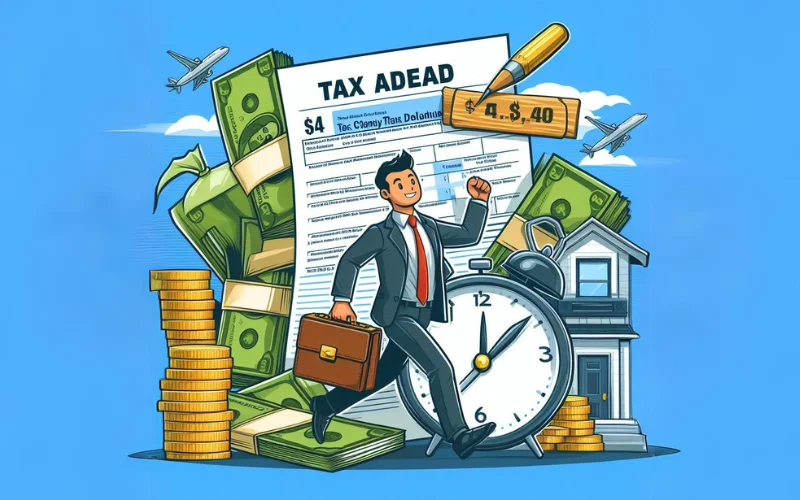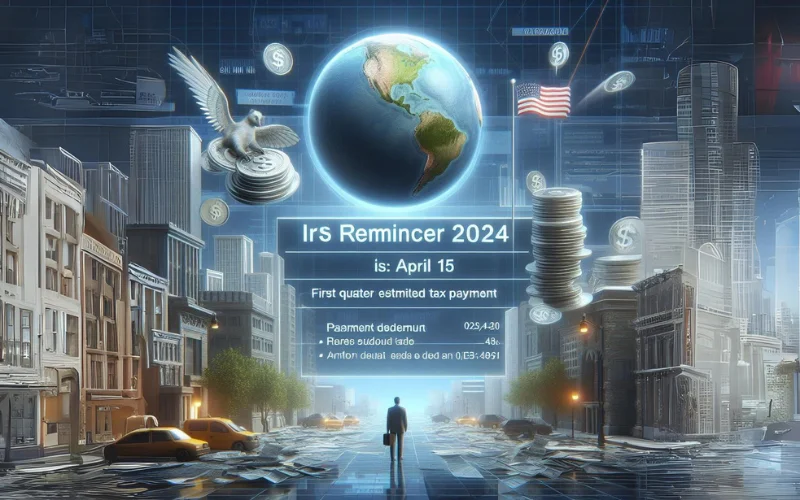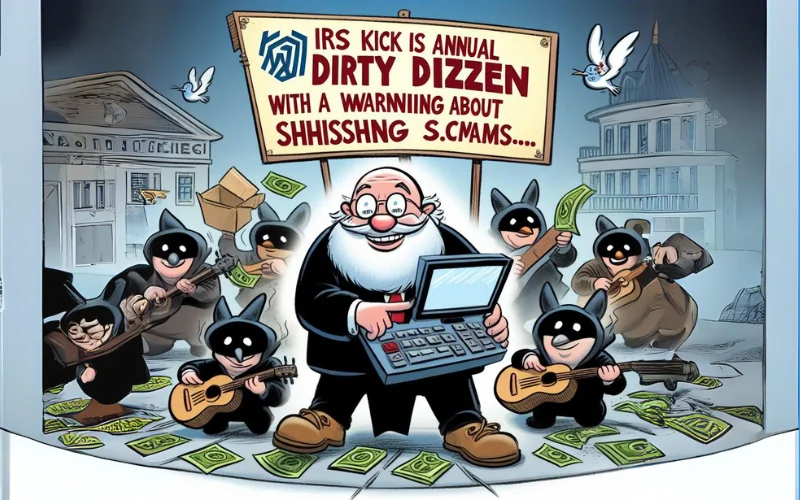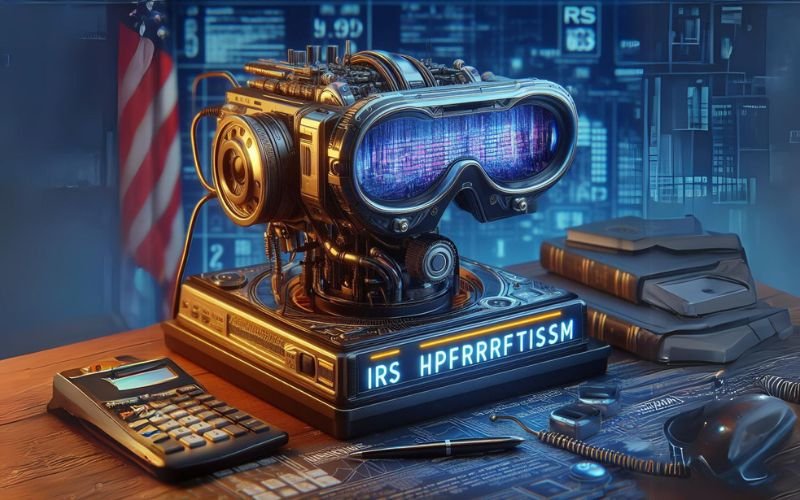I. Opportunity
On my 1-year anniversary as IRS Commissioner, it is an honor to be here at this historic university. This is a fitting place to talk about the IRS – an agency that affects all Americans. And a university is a fitting place to talk about the future IRS, because you are at the start of a journey where you will be filing your taxes with the IRS for many, many years to come.
Right now, the IRS stands at a historic crossroads. There is an opportunity we have that we have not had before – a once in a generation opportunity.
You may be wondering – what opportunity?
That is the same question I had when I was home one Friday afternoon in the fall of 2022, when I received a phone call from the Biden Administration asking if I would be willing to serve as IRS Commissioner.
Once I could get my jaw off the floor, because this was a surprise and a great honor, my first question to the White House and Treasury leadership was – what are you hoping that I, or any IRS Commissioner, would achieve in that role?
They told me, the next Commissioner could lead the IRS through the most important tech-enabled transformation of a government agency in US history. I will be honest with you – part of me wondered if this was a bit of hyperbole. But I now know that this was no exaggeration.
As I consider the world you live in and what you expect to do digitally – on your phone and tablets, without paper, from wherever you are in the world – I have come to realize that the modernization of the IRS is a generational imperative.
And ensuring that the IRS stays on pace with an ever-increasing digital world is just part of what we hope to achieve. Our race to catch up with the modern economy, if we can complete it, will unlock three critical results:
First, it unlocks our ability to ensure access, engage in communities and make tax administration work better;
Second, it unlocks our ability to increase accountability for those that seek to inappropriately exploit the tax system;
Third, it unlocks our ability to build trust and increase fairness in the IRS and the tax system.
So, let’s explore why the transformation of the IRS is so vital – and actually quite beneficial – to you, your families and your communities.
II. Responsibility
In 2023, a team of NASA scientists who sent a rocket into space that bulls-eyed an asteroid 7 million miles away, going 40,000 miles per hour won an award for their work. These NASA scientists hit the asteroid dead center – crashing the rocket into it at 14,000 miles per hour – and they changed its trajectory.
For the first time, NASA proved that if an asteroid is headed for Earth, they can deflect it and save humanity. Someone on my team asked – but where did NASA get the money for the rocket? It’s collected by the IRS. And it’s not just ensuring we have the funds so NASA scientists can save the planet from an asteroid. It’s ensuring the government has funds to keep our food safe, our skies safe, our roads safe.
If we are essential to funding so many of the things that make life in America possible, I am left with one burning question…why does Homer Simpson not like us?
It may be because he thinks he pays too much in taxes. It may be that taxes are far too complicated. There are things that are actually outside of IRS control – we do not set the tax rate or write the tax code. But if Homer and other taxpaying Americans are upset that we are not answering the phone or taking too long to send a refund, or increasing stress and frustration as they navigate their tax responsibilities rather than decreasing it, then we can – and should – turn things around.
III. Large mountain to climb
So I suppose I can understand why we were booed by Homer Simpson – or non-cartoon Americans – for being frustrated with the IRS. These are snapshots of the IRS just a few years ago – paper returns piled up in hallways and cafeterias; shuttered tax assistance centers, so people couldn’t get help.
But how did we get to this point – overwhelmed by paper tax forms when the rest of the world had moved beyond paper, deteriorating customer service, anemic audit rates, stagnant technology? It was the result of two trends over the last couple decades. The first trend – the IRS has been under-funded for more than a decade. From 2010 to 2021, the IRS budget was slashed by more than 22 percent.
The second trend is that during this decade of budget cuts, the American population grew, and annual tax returns increased by more than 15 million, along with countless changes to the tax laws and increasingly complicated financial environment, globalization, additional currencies, exponential growth in digital commerce.
As our budget declined, but our plate of responsibilities grew, IRS employees worked through it– where long hours and sweat equity would often get the job done because innovative technologies were not available.
Enter the pandemic. The IRS workforce heroically managed through the pandemic, including running the tax system and successfully getting emergency payments to hundreds of millions of Americans and small businesses across the country. But eventually, the Bottom Fell Out.
Coming out of the pandemic, we were so buried in paper backlogs, understaffed, and hobbled by stagnant tech, we literally could no longer answer the phones or keep our walk-in centers open.
Enter the Inflation Reduction Act, and tens of billions of dollars to not only build the IRS back up, but to also build it for the future. And even though this new law provides a 10-year runway for the rebuild, it has been clear from Day 1 that we needed to show results immediately.
IV. Progress
This is our Austin cafeteria today – IRA funds allowed us to dig out of a deep hole, get back to better service standards and lay the foundation for the transformation to come.
Now, IRA funds are catalyzing a new era for the IRS. The era of unprocessed returns filling hallways and rooms is ending. We’re ushering in a new era of a digital tax system.
Our phone center is back and operating with record efficiency. All of our walk-in centers are open, fully staffed and expanding around the country. We have new tools on IRS.gov and have seen record traffic to the site. We’ve launched more digital tools in the last two years than we were able to launch in the previous 20.
And sometimes it’s the little things, like that this filing season we added a call back option on our main 1-800 number, ending the era of taxpayers being required to stay on hold listening to elevator music. When you are funded, you can make these types of improvements. When you are not, your operations remain in the past.
V. Vision
Now, we have an opportunity to move beyond just base performance and build a 21st century tax agency to serve the American people in the manner they expect – and the level they deserve.
Our vision for the future is an IRS that is truly effective in easing the stress caused by our complex tax laws. Simpler forms, more intuitive processes and a staff that’s increasingly trained around areas of empathy and understanding, who have the tools to help taxpayers meet their obligations easily and fairly.
Here’s why this matters so much. My parents, who are in their 80s, have never used an ATM. They go into a bank, talk to the teller, and leave with cash. My children, on the other hand, have never set foot in a bank – not to open an account and certainly not to get cash.
Think about how you interact with your bank. When you buy something with a debit card, that shows up on your online account before you even leave the store. But when you make a payment to the IRS, it can take days – even a week – to show up in your online account.
When your bank is concerned about fraud, it will text you and let you sort it out instantly from your smartphone. But when the IRS thinks there’s fraud, we send you a letter.
We’re working to change that and transform to be ready for the new digital economy. With historic funding through the Inflation Reduction Act, we’re building an IRS where:
All taxpayers can meet all of their responsibilities, including all interactions with the IRS – from questions to payments to resolutions – in a completely digital manner if they prefer.
We’re catalyzing this transformation because a digital IRS is a generational imperative. It’s how most taxpayers want to interact with us in the 21st century.
But the digital transformation is also the keystone that helps unlock the true potential of the IRS to achieve the goals I mentioned before:
- First, ensure access, engage in communities and make tax administration work better;
- Second, increase accountability for those that seek to inappropriately exploit the tax system;
- Third, build trust and increase fairness in the IRS and the tax system.
When financial, retail and travel companies moved everything online, which accelerated during COVID, the number of people calling 1-800 numbers dropped precipitously as did the number of people showing up to brick-and-mortar locations.
Our vision is not only one where we can deliver everything for taxpayers on-line; it’s one where we redeploy our capacity, our employees – and we will absolutely still need our employees – who will now have the time and tools to focus on helping the people that need it most and increasing accountability on bad actors and purposeful tax evaders.
In terms of unlocking capacity to help the people that need our help most, less time on the phones means more time our employees can spend helping victims of identity theft and scams.
Less time correcting 1040 forms means our employees can spend more time engaging in communities and supporting walk-in sites and volunteer tax clinics that assist low-income filers and helping taxpayers who can’t afford to hire an accountant to get it right the first time.
Less time processing paper returns means our employees can spend more time helping every taxpayer – regardless of income – claim credits like the Earned Income Tax Credit, which is an economic lifeline for so many. Yet, 7 million eligible low-income taxpayers each year never claim the credit. We can do more to help them. A digital IRS does not mean we’re walking away from in-person service. It means we can do more to help the people that need it the most.
We’ve already added more ways to interact digitally with the IRS. For example, we made significant upgrades this year to the Where’s My Refund? tool. Also this filing season, we launched Direct File, a system where taxpayers in 12 pilot states can file their tax returns online, directly with the IRS, for free.
Direct File is almost tailor made for students and young people with simple tax situations. So, if your home is in a pilot state, check it out – go to directfile.irs.gov to see if you qualify.
Here’s an example of what’s coming in the near future – a clear way to communicate with the IRS and help protect taxpayers from scams and schemes. We will have a screen on your on-line account, like this, letting you know if the IRS is trying to contact you. Why is this critical? Because we have too many bad actors calling and texting pretending to be the IRS and tricking too many Americans into pulling out their credit card and paying them a fake tax debt.
In the future, if you get such a call or text, you will just need to go to your online account. If it shows a green banner like this, then the actual IRS is not trying to reach you. It’s not us. Hang up. Ignore the text. And if you are willing, report this to us – online – so we can investigate and attempt to hold the bad actor accountable.
So you can see right there how our digital transformation frees up capacity to better crack down on scam artists. But it also unlocks capacity for the IRS to increase scrutiny on those that intentionally evade their tax responsibilities.
Second, the digital transformation is the keystone that that helps unlock the IRS’ capabilities to enforce tax laws equitably. Taxes filed fully digital will significantly cut down on basic mistakes and errors, freeing up our employees to focus on the more complex issues. Complex areas of non-compliance tend to occur among our highest wealth and largest taxpayers. And while many are doing the right thing, too many are using this complexity as a way to inappropriately shield their income.
Less resources dedicated to sorting paper returns means more resources to harness tools such as Artificial intelligence to pierce through this complexity and find hidden income. In fact, we are already making use of AI to find those complex partnerships, some of the largest in the world, that are hiding income behind the complexity. That same AI will also help with our precision so that we do not need to contact the other partnerships that are doing the right thing. Using these new AI models we recently opened audits on 76 high risk, complex partnerships including hedge funds and publicly traded partnerships.
The digital transformation unlocks new capacities to scrutinize a lot more high risk, complex filers than we could previously.
And our digital transformation unlocks our ability to focus our enforcement efforts on some high-income groups that, for too long, have flown under the radar. With IRA funding, we have already served notices to 125,000 high-income taxpayers who failed to file federal income tax returns since 2017 – including 25,000 with incomes over $1 million. These non-filers have more than $100 billion of financial activity. We will not allow those with higher incomes to fail to do their basic civic duty of filing a tax return.
A more digital IRS unlocks our ability to audit the inappropriate write offs for personal use of corporate assets, such as corporate jets. In my first year here, the IRS team has already collected nearly $500 million from millionaires and billionaires to ensure fairness in our tax system. And we are just getting started.
Third, our digital platform for taxpayers will unlock our employees’ capacity to help people in need and to increase scrutiny where it is needed most. But perhaps most critical is using new funding and our transformation to unlock our ability to ensure fairness for everyone who plays by the rules and helps build trust in the tax system. No issue is more important than fairness.
Just over a year ago, in fact in the days leading up to my Senate confirmation hearing, researchers at several universities and the U.S. Treasury published a study that found that Black taxpayers were three-to-five times more likely to be audited than other taxpayers.
Our processes were resulting in a disparate impact on Black taxpayers. At my hearing, I not only committed to fixing this as a top priority if confirmed, but I became even more motivated to become the IRS commissioner. I wanted to fix this.
Any indication of racial bias in our work is unacceptable. After being confirmed, I immediately met with the IRS team studying the issue. We dedicated resources to quickly evaluate the extent to which our exam priorities, automated processes and the data we rely on contributed to this disparity. Our findings supported the conclusion that Black taxpayers are audited at higher rates than other taxpayers.
Since I’ve been commissioner, I’ve been meeting with communities that were impacted, listening, hearing their concerns, sharing our regret, and outlining the actions we’re taking, including substantially reducing the number of audits where racial disparities were identified and making changes to our algorithms specifically intended to address the disparity.
And we are ready to invest Inflation Reduction Act resources to invest in technologies that can help identify any disparities across dimensions of race, ethnicity, age, gender and geography. And we are using that research to continuously refine our approaches across compliance and enforcement efforts.
Above all, we’re trying to rebuild trust. We’re overhauling compliance and education efforts to advance our commitment to fair, equitable and effective tax administration and hold ourselves accountable to taxpayers we serve.
VI. Impact
I’m the 50th IRS Commissioner. For 150 years dating back to President Lincoln, the IRS really just focused just on assessment and collection.
But more recently the IRS role has evolved, as the tax laws are increasingly playing a larger role in addressing the most pressing challenges of our time.
IRS employees today are hard at work on programs to:
- Cut child poverty – using tools like the expanded Child Tax Credit;
- Expand Healthcare access – the reason you can stay on your parents’ insurance through age 26 is the Affordable Care Act, and much of the way the ACA is implemented is through the IRS and the tax system; and
- Address the threat of climate change through Inflation Reduction Act tax credits.
With IRA funding, we can support policies that improve the lives of all Americans. And we can ignite the transformation to meet this critical moment in tax collection and beyond.
But to succeed and truly build an IRS for the 21st century, we need you. We need accountants, lawyers and finance experts; but we also need data scientists, engineers, experts in AI and human behavior.
No matter what you’re studying, we need your talents, your expertise and most importantly your passion for change and for service. And we’re hiring.
VII. Conclusion
In the summer of 1963, John F. Kennedy came here, to American University’s commencement, where he called for the first nuclear test ban treaty with the Soviet Union. It was the start of a historic effort that led to greater stability and peace in the world.
President Kennedy – by the way – is the only President to ever visit the IRS headquarters. I pass a photo of his speech every day.
President Kennedy told AU graduates in 1963,
No problem of human destiny is beyond human beings. Man’s reason and spirit have often solved the seemingly unsolvable – and we believe they can do it again.
Thankfully, tax administration is a far cry from nuclear diplomacy. But it’s not lost on us that the decisions and actions of the IRS affect the lives of every American – directly and indirectly. Those are the stakes in this effort to solve what has, for too long, been unsolvable – to undertake most important tech-enabled transformation of a government agency in US history.
Catalyzed by historic funding – guided by reason and spirit – we can transform the IRS for the 21st century. We can meet taxpayers where they are, support them to meet their obligations and make tax administration work better. We can increase accountability for those who try to exploit the tax system, build trust and increase fairness. And we can better serve the country and you – our future taxpayers – in the years and decades to come.
SOURCE: IRS Newsroom





